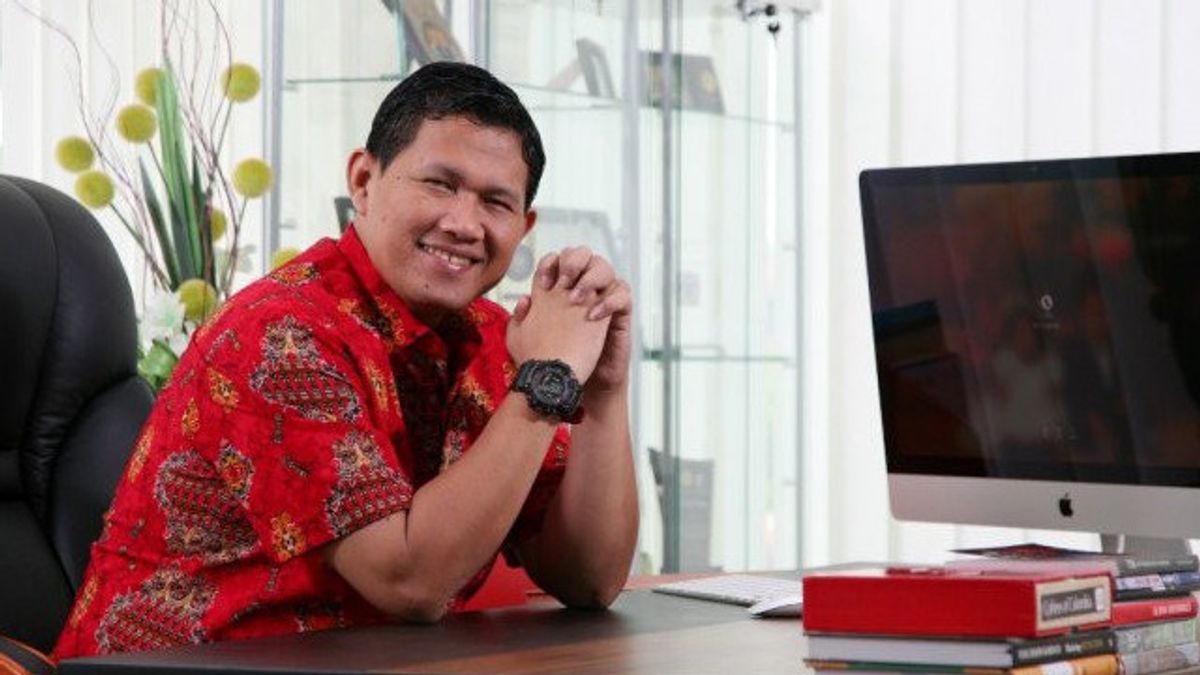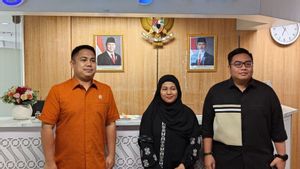JAKARTA - Various accusations have been addressed to the TikTok application, one of which is that this Chinese social network and music video platform is being used by espionage. For this reason, the Cyber Security and Communication Research Institute for the Communication and Informatian System Security Research Center (CISSReC) advised officials not to play TikTok if they were worried.
However, in general, there is nothing suspicious about this application from the People's Republic of China (PRC). This was revealed by cybersecurity expert from CISSReC, Dr. Pratama Persadha.
"From the results of the CISSReC analysis, the TikTok data stream in general is not suspicious," said Dr. Pratama Persadha, launched Antara, Sunday, July 26.
Pratama then gave an example of the ip address 161.117.197.194 which went to Singapore, then 152.199.39.42 to America. When tested with malware analysis using samples from 58 antivirus vendors, no malware was found.
"When we tried to check with malware analysis, there was no suspicious activity when installing TikTok, there was no hiding malware," said the chairman of the CISSReC Cyber Security and Communications Research Institute.
If it does contain malware, according to him, actually not only the US will ban TikTok, but Google will remove TikTok from their Playstore. However, this is also not done by Google.
The accusation against TikTok, said Pratama, was indeed quite serious because it was not only limited to collecting data in its application, but also suspected of having user data flow to China.
In Europe, what is being done is monitoring data because this is a serious concern for the world community. According to Pratama, actually the same thing could also be directed at the United States, especially since this country has the rules of the Foreign Surveillance Act (Foreign Intelligence Supervision Act) which allows the US apparatus to enter and retrieve the technology giant's data.
"What makes the most sense is that important officials and their circles should not play TikTok if they are worried," said Pratama.
If people want to use it, he continued, there is actually no problem. However, if there is a need for officials and politicians for branding themselves or institutions, it is better to use a different device from the devices that they wear everyday.
Pratama then suggested setting the security of user privacy settings on each device via the permissions on each application.
He explained that permissions are requests from applications for application needs that appear with a line of information, requesting access to cameras, microphones, phones, logs, and others.
"Most users underestimate it, considering that the message is only information, even though it is very important," said the man who was born in Cepu, Blora Regency, Central Java.
The English, Chinese, Japanese, Arabic, and French versions are automatically generated by the AI. So there may still be inaccuracies in translating, please always see Indonesian as our main language. (system supported by DigitalSiber.id)













